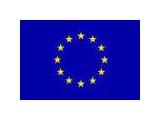Today.Az » Politics » Ali Abbasov: "The EU is becoming a new force able to balance the Russian and US pressure"
04 September 2006 [19:35] - Today.Az
Ali Abbasov, doctor of philosophic sciences, head of department of the Institute of Philosophy and Political-Legal Research of the National Academy of Science of Azerbaijan (NASA), have an interview to Regnum news agency.

Naturally, my first question is about the Nagorno Karabakh conflict. The disclosure of the conflict settlement principles by the US OSCE MG Co-Chair Matthew Bryza has been followed by a period of lull. How will this conflict be settled? I think that the only way to settle the conflict is to integrate the South Caucasian countries into Europe. I had said that even before the EU proclaimed its New Neighbors program and, when it did, it became obvious that if our countries form a common political, economic, cultural and defense space, they will solve not only this but also all the other conflicts. As the program will develop, all the three South Caucasian countries will become candidates for EU membership, and this will lead to the (full) resolution of the problem of security and the (partial) resolution of the problem of border crossing. And this will pave the way for the resolution of ethnic-territorial problems. We should not forget that in 1920 Karabakh also underwent strong shocks but 2-3 years later there was already nothing to remind of them. A few days ago political expert Ilgar Mamedov promulgated Azerbaijan's Action Plan under the New Neighborhood policy, which, unlike the APs of Georgia and Armenia, does not clearly say that Azerbaijan is going to join the EU. True, the Azeri Foreign Ministry sweetened the pill by saying that this is just a draft but still it seems that Euro-integration is being put off... ...In fact, the FM said that the Action Plan is a confidential document and that the plan Mamedov got in hand was not the actual plan. I personally have got the English version of the plan but I would not say that this is the final version and I would rather no blame anybody for the lack of the Euro-integration point in it. On the other hand, in Georgia and Armenia the plan has been actively discussed by the public and the authorities and, as a result, they have got a voluminous package of public recommendations. Unfortunately, we did not have such discussions and now have to use our own judgement to draft relevant recommendations. Perhaps, some officials are not interested in European integration? As Euro-integration means enhanced public control over oil revenues and official expenses, bigger role of local self-governments and, most importantly, fair elections and certain restrictions on the authorities... This is a hard question. In fact, the West does control the inflow of oil revenues and their spending. Simply, there is no strategic mentality, realization of how important it is for the country to become an EU member or, at least, to declare intention to become one. Heydar Aliyev got our authorities out of the habit to think strategically as he solved all such problems exclusively on his own. And now nobody wants to take the responsibility even though Euro-integration is a reasonable way for Azerbaijan out of the present grip between Russia and the US. In fact, the EU is becoming a new – non-conflict – force capable of balancing the pressure of Russia and the US. EU membership will also help Azerbaijan to solve its economic problems. Of course, Azerbaijan should realize that nobody will give it a candy just "for nothing." Unfortunately, we have yet no analytical centers - either independent or governmental - in Azerbaijan. Ronald Young, who directed the 1.5 year TACIS program on state service and state administration reforms in Azerbaijan, says that even in Uzbekistan, where he worked before, they do not solve problems alone: they submit them for public discussion and solve them on the basis of initiatives and proposals received - something Young did not see in much more democratic Azerbaijan... In Uzbekistan they still use the old Soviet system. In the Soviet times, the USSR Constitution was discussed in institutes, factories and farms, people made proposals and the authors considered some of them. As regards Azerbaijan, Young does not know that many Azeri laws, including those concerning elections, have been examined by the Venice Commission. Of course, Uzbekistan cannot cooperate with the Commission as actively as Azerbaijan can, but the main point is that our civil society is weak and we cannot prove to the West that we are a force that can change the situation. That's why they prefer working with the government, who, certainly, has competent lawyers. That is, the CE and the Venice Commission ignore us because they believe that it is much easier to agree with the government: indeed, it is much easier to pressure one person than everybody. We should realize that this situation will continue until we create health civil society. /Regnum/
|